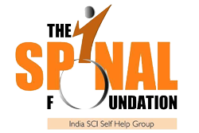Menu
- Identify and reach out to people with spinal cord injury with a focus on connecting with the newly injured as early as possible after the injury date.
- Advocate and facilitate the right to rehabilitation after a spinal cord injury.
- Support and monitor the spread of quality rehabilitation facilities.
- Improve quality of treatment and rehabilitation for persons with spinal cord injury through creation and implementation of evidence-based indigenous medical protocols.
- Establish a robust peer network and a knowledge bank with a special emphasis on serving populations from rural areas, lower-income groups and persons with no access to contemporary communication facilities.
- Facilitate the establishment of a high-quality registry of persons with spinal cord injury with the support of the government.
- Enable enhancement in quality of life for persons with spinal cord injury through
o Advocacy against unscientific methods of so-called treatments.
o Fight incidence and encourage proper management of pressure ulcers, commonly known as bedsores.
o Inclusive education, training, empowerment and guidance on vocation / employment.
o Social integration, recreation and sports leading to general health and fitness.
o Promoting, tracking and reporting research.
o Aiding information and availability of aids, implements and medical supplies.
- Follow the social, economic and family lives of persons with spinal cord injury so as to be able to provide support where needed and possible, especially by connecting the spinal cord injured person, his family and friends with support systems at multiple levels in a geographic sense.
- Sensitise and build awareness about spinal cord injury and its multi-faceted implications.
- Mould public policy at multiple levels of government.
- Champion initiatives to reduce incidence of spinal cord injury.
- Promote accessibility by removing mental and physical barriers.

 by
by